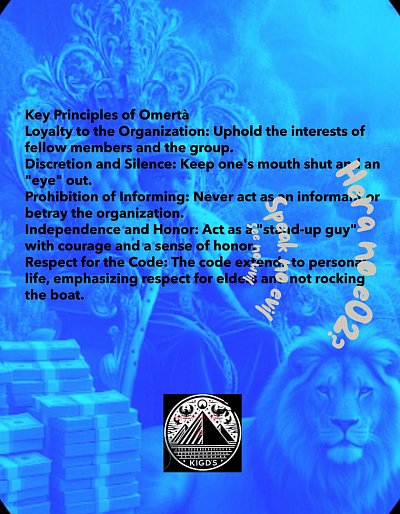Code of Silence: The Principle of Omertà
The Concept of Omerta and Its Significance
Omertà is a powerful and deeply rooted concept originating from Southern Italian—particularly Sicilian—culture. It’s often associated with the Mafia, but its significance goes far beyond criminal codes. At its core, omertà is a code of silence, a vow of loyalty, discretion, and protection of one’s community or inner circle.
🔒 What Omertà Represents
- Silence as Strength: Omertà teaches that not everything needs to be spoken. Power often lies in what’s withheld, not what’s revealed.
- Loyalty Above All: It’s a pledge to protect your people, even at personal cost. Breaking omertà is seen as betrayal—not just of individuals, but of legacy and honor.
- Self-Governance: Historically, omertà emerged in regions where trust in external authority was low. Communities relied on their own codes to maintain order and respect.
🧠 Why It Still Resonates
In today’s world, omertà can be reinterpreted as a symbol of discipline, unity, and strategic restraint. It’s about knowing when to speak, when to act, and when silence serves a higher purpose. For a brand like From Kings to Gods, it echoes themes of honor, legacy, and the sacred bond between those who rise together.


